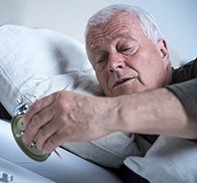Peer Reviewed
Feature Article Respiratory medicine
Sleep problems in older people: a practical guide to management
Abstract
Sleep problems are common in older people and are often multifactorial. Contributing factors include sleep disorders such as sleep disordered breathing, circadian rhythm disorder, restless legs syndrome, periodic limb movements in sleep and mood disorders. Rather than prescribing hypnotics, GPs should investigate and treat any underlying disorders and contributing factors, with referral to a specialist when required.
Correction
A correction for this article has been published in the September 2016 issue of Medicine Today. The full text PDF for this article (see link above) has been corrected.
A correction for this article has been published in the September 2016 issue of Medicine Today. The full text PDF for this article (see link above) has been corrected.
Key Points
- Sleep disturbance is common among older people and is associated with adverse neurocognitive and cardiovascular consequences.
- Causes of insomnia in older people are often multifactorial and include mood and sleep disorders (e.g. sleep disordered breathing, circadian rhythm disorders, restless legs syndrome and periodic limb movement disorders)
- Potential contributing factors to insomnia, such as underlying comorbidities, psychological distress, medications and environmental disturbance, should be carefully explored.
- Dream enactment behaviour should raise the suspicion of REM-sleep behaviour disorder, which could signal the prodrome of a neurodegenerative disease.
- Patients should be referred to a sleep physician when the diagnosis is not clear or further investigations and management are required.
Picture credit: © Azmanl/iStockphoto. Model used for illustrative purposes only.
Purchase the PDF version of this article
Already a subscriber? Login here.

